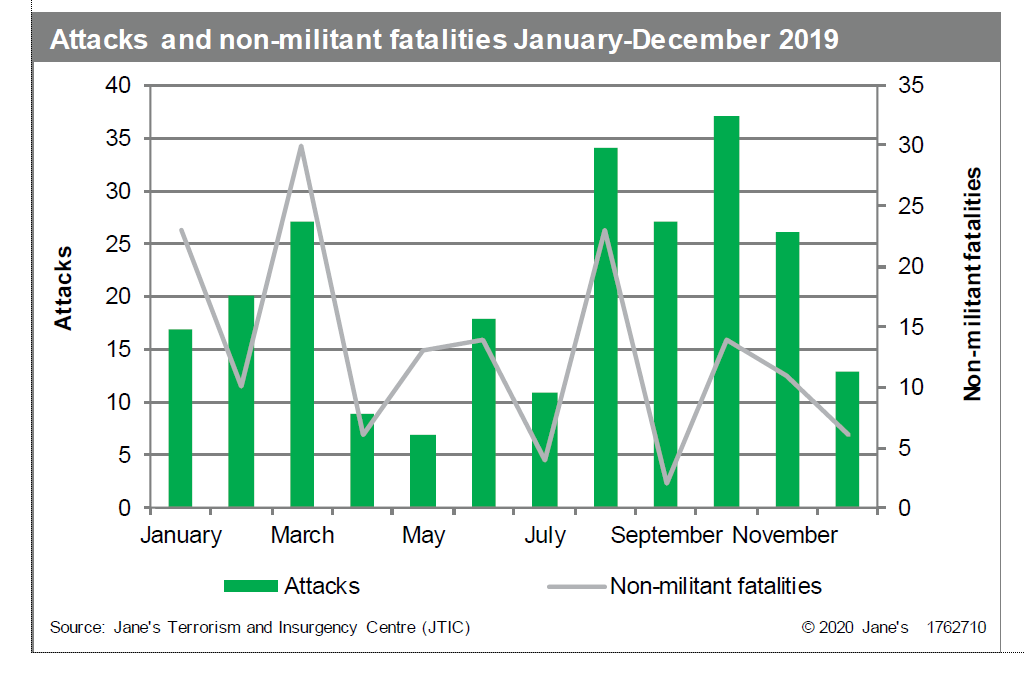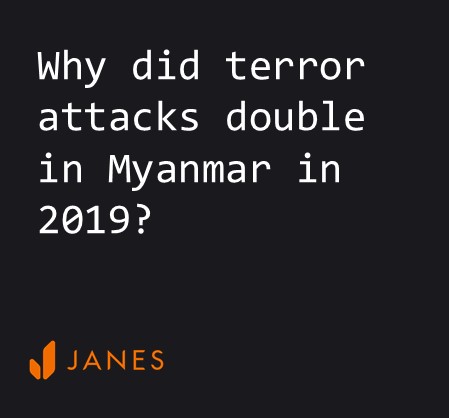العربية
日本語
- About
- Intara
- Capabilities
- Advisory
- Resources
- News
- Store
When autocomplete results are available use up and down arrows to review and enter to select.
When autocomplete results are available use up and down arrows to review and enter to select.
Terror Attacks Double in Myanmar
Janes Terrorism and Insurgency Centre (JTIC) recorded 246 attacks by non-state armed groups (NSAGs) in Myanmar in 2019, up 98.4% from 124 attacks in 2018.
What caused the increase?
“The significant increase in attacks in Myanmar particularly reflects the intensifying conflict between the armed forces and the Arakan Army ethnic insurgent group in Rakhine State”, said Matthew Henman, head of Janes Terrorism and Insurgency Centre.
“The conflict has spread broadly across key areas of the state, and while the figures recorded from open sources reflect this, the true scale of the fighting – and casualties suffered by the armed forces – has been obscured by a media blackout in Rakhine, preventing a more accurate recording of events therein.”
For the same time period, JTIC recorded an 11.8% increase in the number of non-state armed group attacks across Asia-Pacific.

Stay ahead of the threat with daily monitoring of events globally and locally. Data is gathered from multiple sources and double source verified, with each event ranked for significance, enabling analysts to work only with those data sets that are significant and reliable in order to support, validate and declassify your proprietary and classified sources. Be confident about open source information you communicate to commanders and allies. The rigorous methodology ensures JTIC data and insight is timely, accurate and complete ensuring you can trust the conclusions you draw from the JTIC content.
 Case Study: Myanmar Attacks Janes Terrorism and Insurgency Centre (JTIC) recorded 246 attacks by non-state armed groups (NSAGs) in Myanmar in 2019, up 98.4% from 124 attacks in 2018.
Case Study: Myanmar Attacks Janes Terrorism and Insurgency Centre (JTIC) recorded 246 attacks by non-state armed groups (NSAGs) in Myanmar in 2019, up 98.4% from 124 attacks in 2018.